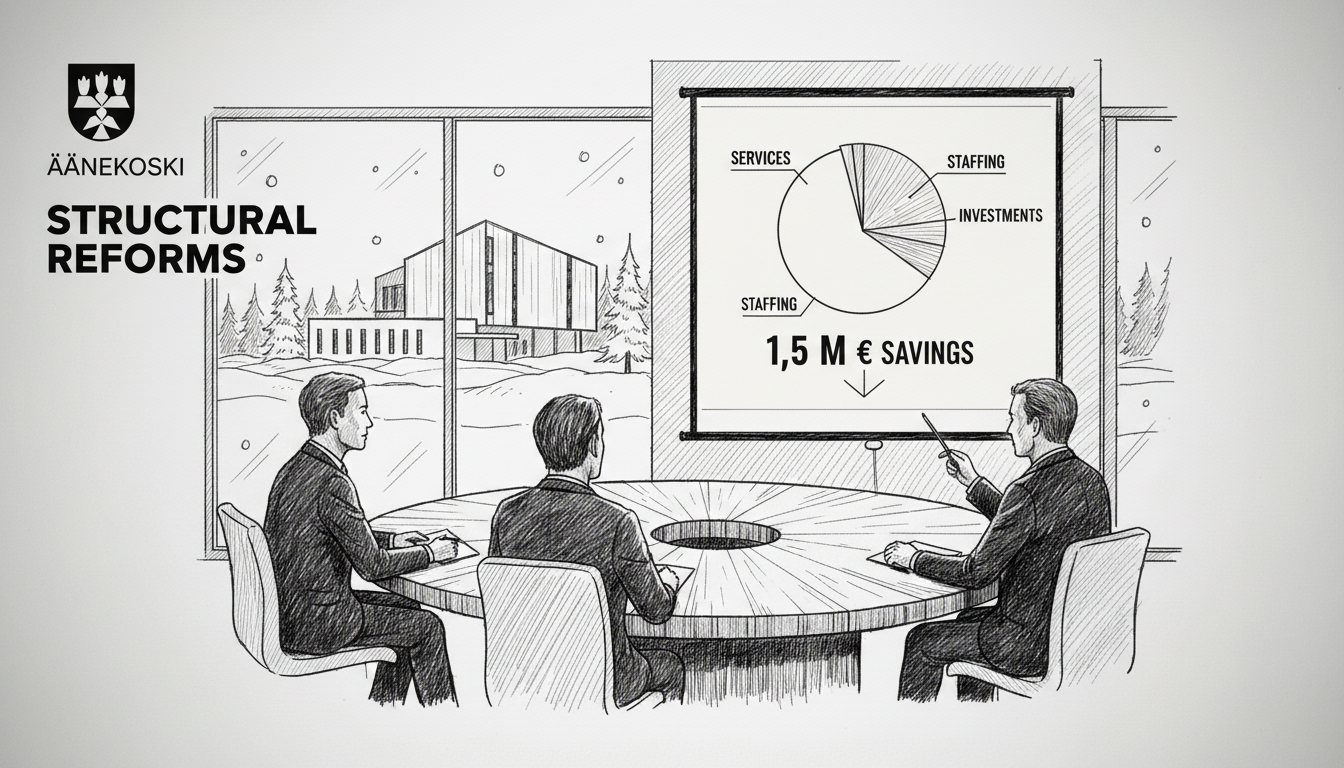The central Finnish municipality of Äänekoski confronts substantial financial challenges requiring permanent budgetary adjustments. Municipal officials announced a necessary 1.5 million euro permanent savings target during their latest financial review. This development reflects broader fiscal pressures affecting numerous Finnish municipalities despite national economic stability.
City government representatives will establish a dedicated working group to address the budgetary shortfall. The economic balancing team must deliver its comprehensive savings proposal by March 2026. This timeline allows for thorough analysis of all municipal operations and responsibility areas.
The working group will examine multiple approaches to achieve financial stability. They will investigate potential revenue enhancement opportunities alongside concrete expenditure reduction measures. Practical implementations may include structural modifications to service networks, service delivery methods, staffing considerations, municipal assets, and corporate organizational structure.
Future investment levels across coming years will undergo careful evaluation. All municipal sectors and administrative domains will undergo systematic review. Structural changes might necessitate cooperation procedures with municipal personnel according to standard Finnish labor practices.
Finnish municipal finance experts note that Äänekoski's situation mirrors challenges facing many mid-sized municipalities. They must maintain service quality while managing demographic changes and infrastructure costs. The Finnish government's ongoing municipal reform initiatives aim to address these systemic issues through regional cooperation models.
International readers should understand that Finnish municipalities enjoy substantial autonomy regarding service provision and taxation. They deliver education, healthcare, social services, and technical infrastructure within their territories. This decentralized system creates varying financial situations across different regions despite national funding mechanisms.
The working group's composition will prove crucial for developing balanced solutions. Municipal finance specialists, administrative leaders, and personnel representatives typically participate in such processes. Their recommendations will eventually require approval from the city council before implementation.
This budgetary rebalancing occurs against Finland's broader economic backdrop. The nation maintains relatively strong public finances despite European economic uncertainties. Yet regional disparities and demographic pressures create distinct challenges for individual municipalities like Äänekoski.

